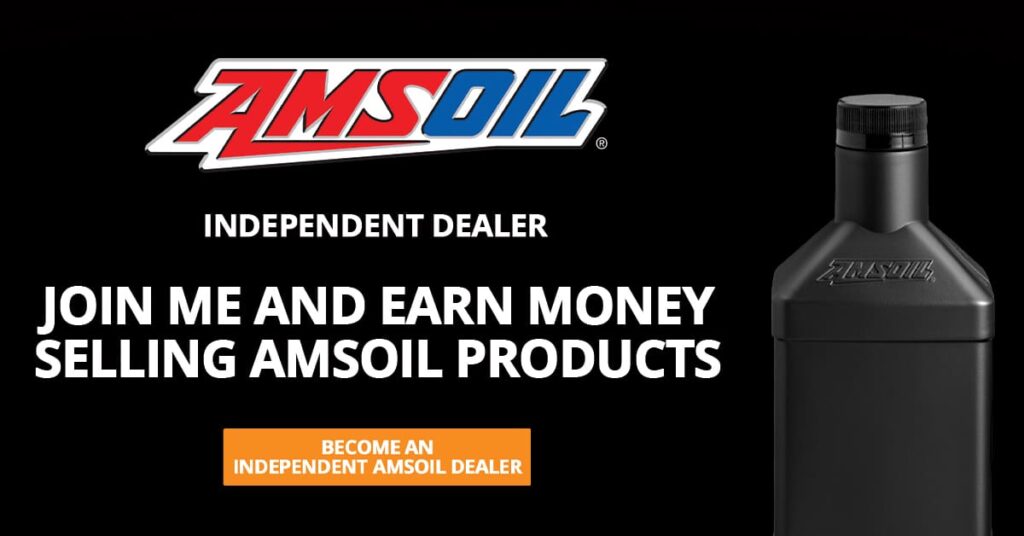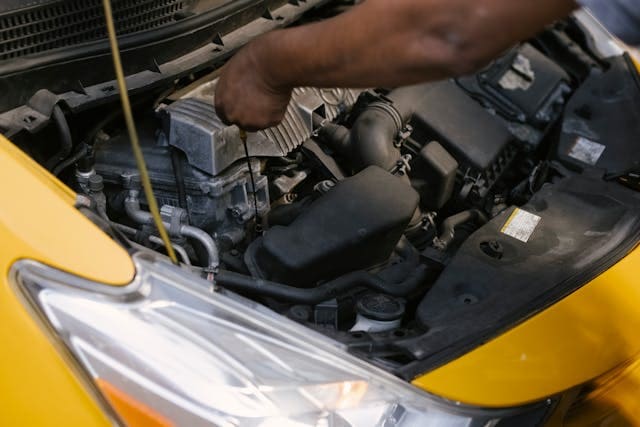Perhaps you’re noticing an oil smell or finding wet spots under your vehicle. This often indicates an oil leak. Recognizing and addressing these leaks early can prevent further damage to your engine. Welcome to this blog post, where we focus on identifying oil leaks, understanding their causes, and exploring how high mileage oil can prevent them.
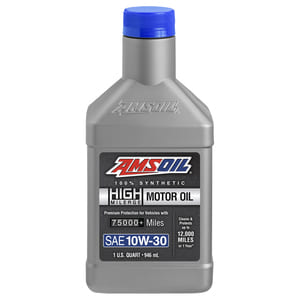
Identifying Oil Leaks
Common Signs
- Burning Smell: One of the first signs of an oil leak is a burning oil smell. This usually happens when oil drips onto hot engine parts.
- Wet Spots Under Vehicle: Placing cardboard under your parked car can reveal oil dripping, which leaves wet spots, confirming a leak.
Using Cardboard to Detect Leaks
Slipping a piece of cardboard under your car while it’s parked can help confirm an oil leak. Check the cardboard after a few hours to see if there’s an oily spot.
Importance of Early Detection
Catching an oil leak early can save you from costly repairs. Leaks left unchecked can lead to low oil levels, increased engine wear, and even catastrophic engine failure.
Focus on High Mileage Oil
High mileage oil is specifically formulated for vehicles with significant wear and tear. It includes additives that help reduce oil leaks and prolong engine life.
Leak Prevention Strategies
Adopting the right maintenance strategies can help prevent leaks. Using high-quality oil designed for older engines is a critical step.

Finding Oil Leaks
Cleaning Method
- Using AMSOIL Brake and Parts Cleaner: Remove residual oil by spraying AMSOIL Brake and Parts Cleaner on the suspected leak area.
- Removing Residual Oil: Cleaning the area helps you spot new leaks more easily.
Foot Powder Technique
- Applying Foot Powder Spray: After cleaning, spray foot powder on the area. The powder will absorb any leaking oil and turn a darker color, making the leak visible.
- Identifying Wet Spots: Check for darkened powder spots to pinpoint the leak’s location.
Oil Dye Method
- Adding Oil Dye to Engine: Add a special oil dye to your engine oil. The dye will mix with the oil and leak out with it.
- Using a Black Light for Detection: Shine a black light on the engine area. The dyed oil will glow under the black light, revealing even tiny leaks.
Causes of Oil Leaks
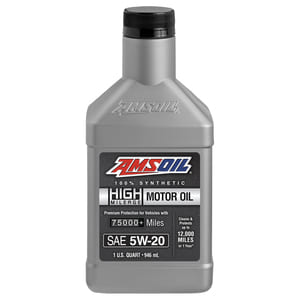
Blowby Explanation
- Definition of Blowby: Blowby occurs when combustion gases escape past the piston rings into the crankcase, mixing with the oil.
- Visual Representation: You can see blowby every time the engine fires, causing gases to force their way into the oil.
Effects of Combustion Gases on Oil
Combustion gases mix with oil and create pressure inside the engine. This excess pressure can push oil past seals and gaskets, causing leaks.
Pressure Buildup in Engine
Continuous blowby increases internal pressure, stressing the engine seals and gaskets, leading to potential oil leaks.
Oil Design Considerations
Addressing Blowby in Oil Formulation
High mileage oils are designed to handle the increased blowby in older engines. They contain additives that minimize the effects of blowby.
High Mileage Vehicle Needs
Older vehicles require specially formulated oils that address issues like increased blowby, varnish, and sludge.
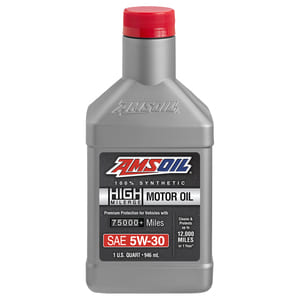
Issues in Older Vehicles
Varnish Buildup
Varnish forms from oxidized oil residues, coating internal engine components and reducing efficiency.
Sludge Formation
Sludge results from prolonged exposure to heat and contaminants, impeding oil flow and damaging the engine.
Impact on Engine Performance
Both varnish and sludge can significantly impair engine performance, leading to overheating and increased wear.
High Mileage Motor Oil Benefits
Cleaning Properties
High mileage oils contain detergents that help clean existing varnish and sludge from the engine.
Sludge Removal Capabilities
These oils break down sludge, allowing it to be safely filtered out during oil changes.
Varnish Reduction
Detergents in high mileage oil reduce varnish buildup, keeping the engine cleaner and more efficient.
Vehicle Seals
Types of Seals
- Cork: Traditional gasket material, prone to drying out and cracking over time.
- Rubber: More durable but still susceptible to wear and tear with age.
- Neoprene: Designed for high durability but can also degrade and lose flexibility.
Common Seal-Related Issues in High Mileage Vehicles
Older seals can dry out, crack, or lose their flexibility, leading to oil leaks. Regular maintenance and using high quality oil can mitigate these issues.
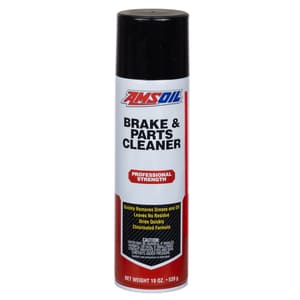
AMSOIL’s High Mileage Solution
Seal Conditioner Additives
AMSOIL high mileage oils include seal conditioners that help rejuvenate aged seals.
Seal Swell Properties
These additives cause seals to swell slightly, helping to restore their ability to prevent leaks.
Rejuvenation of Dried and Cracked Seals
Seal conditioners in high mileage oil can extend the life of aging seals, reducing the likelihood of leaks.
Real-world Example
Dave’s Exteror Case Study
Dave has been using AMSOIL products since he first got his vehicle. As it aged, he switched to AMSOIL’s high mileage oil.
Long-term Use of AMSOIL
Dave’s Exteror has continued to perform well without significant oil leaks, thanks to regular use of AMSOIL high mileage oil.
Transition to High Mileage Oil
Switching to high mileage oil has helped maintain the integrity of the vehicle’s seals and overall engine health.
Accessing AMSOIL Products
Online Purchasing Options
AMSOIL products are available for purchase online. Visit bestengineoilintheworld.com to browse and order.
Product Selection Guide
bestengineoilintheworld.com provides detailed information to help you choose the right oil for your vehicle. Consider factors like engine age, mileage, and specific issues.
Preventative Maintenance
Regular Oil Changes
Regular oil changes are crucial for maintaining engine health and preventing leaks.
Using the Right Oil for Vehicle Age
Choosing the correct oil for your vehicle’s age and condition can significantly reduce the risk of leaks.
Monitoring for Early Signs of Leaks
Keep an eye out for early warning signs of leaks, such as oil spots under your vehicle or a burning smell.

Understanding Oil Viscosity
Importance for High Mileage Vehicles
High mileage vehicles may require oil with different viscosity to ensure proper lubrication and minimal leaks.
Choosing the Right Viscosity
Consult your vehicle’s manual and AMSOIL’s product guides to select the appropriate oil viscosity for your engine.
Engine Wear and Oil
How Engine Wear Affects Oil Needs
As engines wear, they may require oils with specific additives to maintain performance and prevent leaks.
Adapting Oil Choice to Engine Condition
Tailor your oil choice to the condition of your engine, considering factors like mileage, age, and performance issues.

Environmental Impact of Oil Leaks
Soil Contamination
Oil leaks can lead to soil contamination, damaging plant life and ecosystems.
Water Pollution Risks
Leaked oil can find its way into water bodies, causing significant environmental harm.
Proper Disposal of Leaked Oil
Dispose of leaked oil properly to minimize environmental impact. Many service stations offer recycling programs.
Preventing oil leaks and maintaining engine health in high mileage vehicles is essential. Choosing the best motor oil for leaks, like AMSOIL’s high mileage oil, can make a significant difference. Visit bestengineoilintheworld.com to explore AMSOIL’s range of high mileage oils designed to keep your engine running smoothly and leak-free. Regular maintenance and using the right products will ensure your vehicle stays in top condition for years to come.
